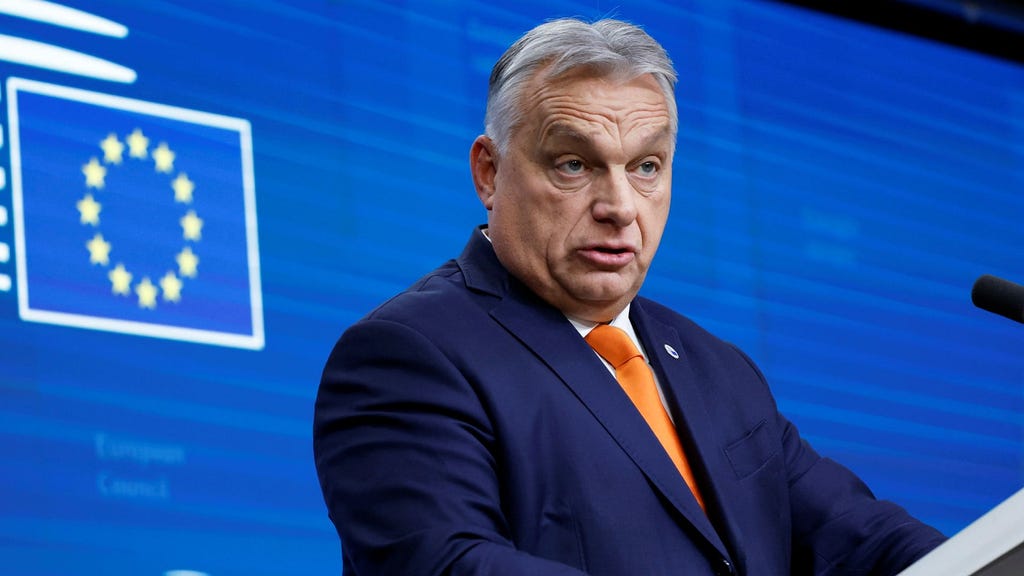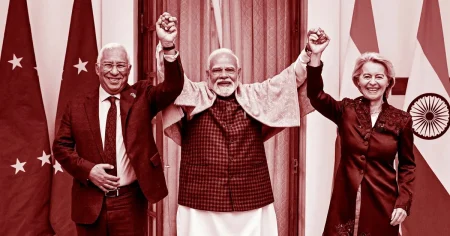The European Union’s ambitious enlargement plan, aiming to incorporate up to ten new member states, is facing a significant disconnect between political rhetoric and practical reality. While the EU officially champions a ”new dynamic” in the enlargement process, underlying tensions and reluctance among member states threaten to undermine the entire endeavor. The author, having attended numerous seminars on the topic, expresses a lingering confusion about how this ambitious project will actually be implemented, highlighting a pervasive gap between the aspirational pronouncements and the concrete steps being taken. Publicly, EU leaders express unanimous support, but privately, many harbor reservations and actively seek to postpone crucial decisions, likely fearing a negative public reaction. This discrepancy raises serious concerns about the EU’s credibility and the potential consequences for applicant countries.
The current enlargement process, encompassing Ukraine, Moldova, Georgia, Montenegro, Serbia, North Macedonia, Bosnia and Herzegovina, Albania, Kosovo, and Turkey (whose accession talks are currently frozen), is primarily driven by the European Commission. This, while negotiations with Montenegro are nearing completion, highlights a concerning lack of political leadership from the member states. The politically elected leaders, who ultimately hold the decision-making power, prefer to defer decisive action, clinging to the mantra of a ”merit-based” process. This ostensibly neutral term effectively implies an indefinite timeline for applicants to meet EU standards, creating an illusion that the enlargement issue can be safely shelved. This tactic, however, carries significant risks. It not only fuels the expectations of applicant countries, who have been actively encouraged by the EU, but it also jeopardizes the EU’s credibility and influence in a region of strategic importance, particularly in the context of Russia’s aggression against Ukraine.
The EU’s own strategic interests, particularly in light of Russia’s invasion of Ukraine, necessitate a more proactive approach to enlargement. A stronger, more unified Europe is essential to counter Russian aggression, and indefinitely stalling the accession of hopeful nations undermines this goal. The benefits of EU membership are undeniable, evidenced by the remarkable economic growth experienced by the eight former communist states that joined in 2004. These successes demonstrate the transformative power of EU funds and access to the single market, benefiting not only the new members but the entire European continent. Delaying or denying access to these benefits for current applicants represents a missed opportunity for economic growth and stability across the region. Furthermore, it creates a vacuum that external actors, such as Russia, can exploit.
However, past experiences also offer cautionary tales. Hungary’s democratic backsliding under Viktor Orbán demonstrates the potential for member states to deviate from fundamental EU principles after accession. Similarly, the large-scale migration following the 2004 enlargement, which sparked significant backlash in countries like the UK, underscores the potential for social and political upheaval within existing member states. These experiences understandably fuel apprehension about further enlargement, raising crucial questions about the financial costs, the impact on free movement of people, and the ability to uphold democratic principles and prevent corruption in countries with less developed democratic traditions. Concerns about the EU’s ability to maintain its decision-making capacity within an enlarged union are also prevalent. These legitimate anxieties require honest and open discussion, rather than avoidance and obfuscation.
Addressing these concerns requires a shift from academic discourse to public debate. While researchers have produced numerous studies and reports on the implications of enlargement, including those from the Swedish Institute for European Policy Studies (Sieps), the crucial missing element is engagement with the public. Existing opinion polls reveal significant variations in public support for enlargement across EU member states, with strong support in countries like Lithuania, Spain, and Croatia contrasting sharply with skepticism in Austria, France, and Germany. This divergence underscores the need for proactive communication from EU leaders who support enlargement. Instead of hiding behind the ambiguous language of a ”merit-based” process, they must articulate a clear vision for an enlarged EU, outlining its benefits and addressing the legitimate concerns of their citizens.
Failure to engage in this crucial public discourse will likely lead to further delays and potential vetoes from skeptical member states. The enlargement process requires unanimous agreement at every stage, providing multiple opportunities for individual countries to block progress. Moreover, some countries, like France and the Netherlands, may hold referendums on accession, further increasing the risk of rejection. Such an outcome would severely damage the EU’s credibility and jeopardize its future influence, particularly in the volatile geopolitical landscape of Eastern Europe. The current ambivalent approach, characterized by lofty pronouncements and hesitant action, risks undermining the EU’s strategic goals and jeopardizing the stability of the region. A proactive, transparent, and honest dialogue with the public is essential to navigate the complexities of enlargement and secure a future for a stronger, more unified Europe.














